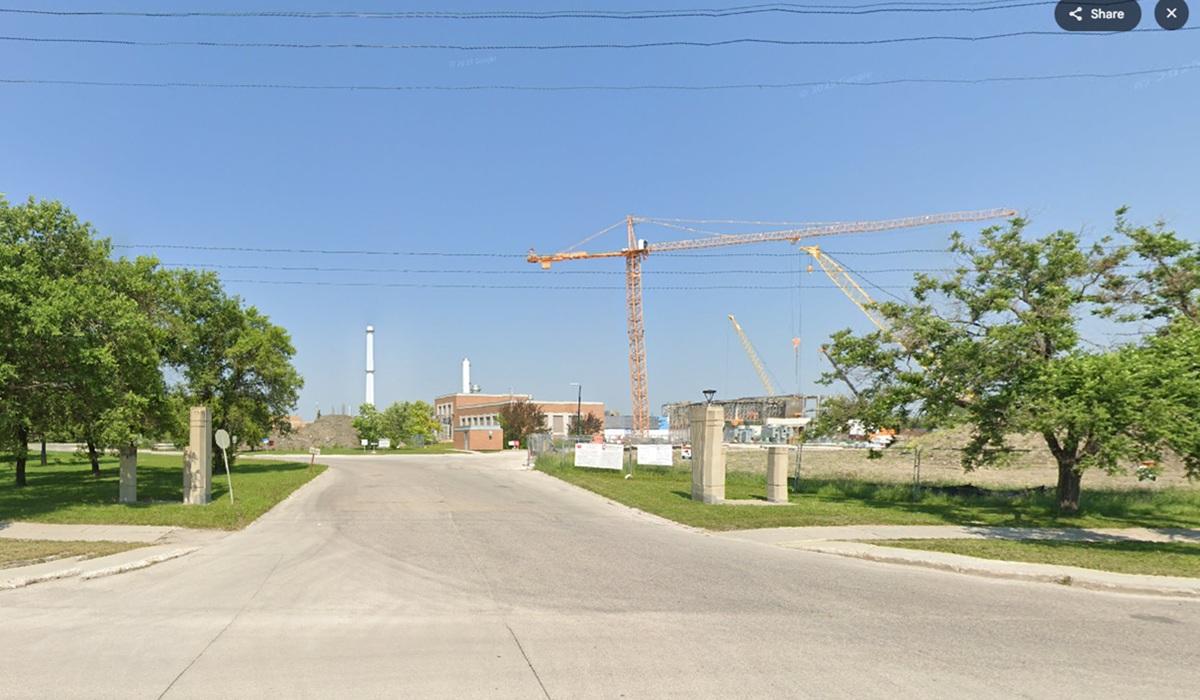Winnipeg’s North End Sewage Treatment Plant $2.2 Billion Over Budget
- Don Woodstock
- Trending News
- September 24, 2025

Winnipeg’s Fiscal Crisis: Why Federal Receivership May Be the Only Way Forward
For years, I have been sounding the alarm about the gross mismanagement at Winnipeg City Hall. What we are witnessing today is not a series of isolated mistakes, but a culture of financial recklessness that now threatens the long-term survival of our city.
The recent revelations published in the Winnipeg Sun by Kevin Klein, former City Councillor, underscore just how severe this problem has become. Klein rightly pointed out that cost overruns at the North End Sewage Treatment Plant have nearly quadrupled from $795 million in 2013 to $3 billion today. That is a staggering 277% increase — and Phase One alone is already 38% over budget. These numbers are not just embarrassing; they are catastrophic. They reveal a pattern of bad estimating, bad decision-making, and outright neglect of the most basic fiduciary responsibilities.
And here is the most damning fact: the current Mayor, Scott Gillingham, was not an outsider swept into office unaware of the problem. He sat for years as the chair of the Finance Committee, at the helm of the very machinery that presided over these runaway budgets. Now as Mayor, he claims surprise when costs spiral out of control, yet it is under his watch — both then and now — that citizens are being saddled with debt they did not agree to and cannot afford.
What makes this all the more outrageous is that Winnipeg has the tools to protect taxpayers but refuses to use them. I have said it before and I will say it again: every major contractor working on city projects is required to provide a Performance Bond. These bonds exist for one reason — to ensure that in the event of non-performance or massive cost overruns, the liability falls on the contractors and their insurers, not on the backs of ordinary Winnipeggers.
Yet the City consistently refuses to call in these bonds. Instead, they stay silent while contractors overrun budgets, pad costs, and drag projects out endlessly. If this were the private sector, heads would roll. Shareholders would demand accountability. But at City Hall, the silence is deafening, and taxpayers are left footing the bill. This is not incompetence anymore; it is negligence.
When I addressed City Hall at EPC on March 15, 2024, I raised this very issue. I spoke about the $200 million bond that Mayor Gillingham intends to take to the market. He cut me off, saying the bond was “not on the agenda.” But there was no published agenda at the time. What is he afraid of? Why is there such resistance to transparency about borrowing that will mortgage our children’s future for decades to come?
The reality is that the City of Winnipeg is treating the bond market as its personal ATM. From Glen Murray’s $100 million bond for the bridge overrun, to Sam Katz’s $200 million issuance, to Brian Bowman’s pledges and now Gillingham’s $200 million “to pay for past decisions,” we have piled on nearly $1 billion in debt in just two decades.
Kevin Klein’s article highlighted another crucial point: while the North End Sewage Treatment Plant continues to spiral out of control, other projects have come in far under budget. The Jefferson district sewer project, for instance, is now expected to cost just $71 million, well below its $175 million estimate. City staff recently cut $1.1 billion from the combined sewer overflow program.
So the question must be asked: why can one side of City Hall rein in costs and deliver projects under budget, while the biggest project in the city’s history balloons out of control? This disparity proves that the issue is not market forces, not global inflation, and not unforeseen circumstances. The issue is leadership.
When the numbers are off by $1 billion or more, this is not a rounding error. It is gross mismanagement. It is like buying a house for $300,000, only to have the bank come back a few years later and say, “Actually, the house costs $900,000. Pay up.” No ordinary family would accept that. Yet this is exactly what City Hall demands of taxpayers, again and again.
What if Winnipeg is on the same path that led Detroit into bankruptcy? For years, Detroit papered over its fiscal problems with borrowing, kicking the can down the road until the debt became unmanageable. The result was catastrophic: bankruptcy, gutted services, and citizens left stranded by the very leaders who were supposed to serve them.
Are we going to wait until Winnipeg becomes Detroit North? Or are we going to start taking oversight seriously now, before it is too late?
As a corporation, Winnipeg is owned by its citizens — the shareholders. And as shareholders, we have every right to demand accountability. Yet what we see instead is a small circle of decision-makers borrowing against our future, and leaving us with the bill.
The math alone should terrify every resident. A $200 million bond at 4.6% interest over 40 years costs $438 million in the end — $237 million in interest payments alone. And that’s if rates don’t rise. If they do, that figure could balloon much higher. This is intergenerational theft.
I have long argued that both the provincial and federal governments need to exercise more oversight over City Hall. At this point, that is no longer a suggestion but a necessity. The situation has moved beyond provincial oversight. It now requires federal action in the form of federal receivership.
And not just for the North End Sewage Treatment Plant, but for the entire City of Winnipeg. The rot runs too deep. The bond market cannot remain a bottomless well for City Hall to draw from at will. Federal trusteeship would mean that Ottawa steps in, takes direct control of the city’s finances, and imposes the discipline that local leaders have proven themselves incapable of exercising.
But federal receivership must only be part of the solution. We must also repeal the changes to the Winnipeg Charter that allowed City Hall to borrow long-term through bonds in the first place. Articles 294 through 297 need to go. We should return to Article 293, which only allows temporary borrowing. The City of Winnipeg should never again be allowed to use the bond market as its personal ATM. That single change would force a culture of fiscal discipline and fiscal management — going line by line through every department budget, cutting the waste, and living within our means. If a project can run over by more than $1 billion, it tells us there is enormous room to find savings elsewhere.
And we cannot stop at the Charter. Right now, there is no legal framework for holding City Hall leadership accountable when they make catastrophic mistakes. After running projects into the ground, they simply retire and collect their pensions. That is unacceptable. There must be real consequences for mismanagement of taxpayer funds. There must be parameters set in law to ensure that public officials who waste billions cannot simply walk away without accountability.
The only accountability mechanism we have today is voting councillors out every four years. That is not enough. We need a recall system — a process where if a councillor or the mayor is failing to do their job, citizens can remove them before the next election. In any workplace, if someone fails to perform, there are mechanisms for their removal. City Hall should be no different. A recall mechanism would put real accountability back in the hands of the people, where it belongs.
I do not believe in criticism without solutions. In the last election, I put forward ideas that could save millions annually without raising taxes. Recycling aggregate alone could put $40 million a year into city coffers. Smarter management of Winnipeg Transit could save $2–3 million per year. But City Hall ignored these proposals, choosing instead to keep borrowing and passing the costs down the line.
The difference between my approach and theirs is simple: I believe in fiscal responsibility and accountability. They believe in mortgaging the future.
It has been said that insanity is doing the same thing over and over again and expecting different results. By that definition, Winnipeg City Hall has been insane for decades. Cost overruns are not an anomaly; they are the norm. Bonds are not a tool of last resort; they are the first reflex. Performance bonds exist to protect taxpayers, yet City Hall refuses to enforce them.
As a father, a citizen, and someone who has called Winnipeg home since 1999, I refuse to stand by while our city mortgages our children’s and grandchildren’s future. Enough is enough.
It is time for the federal government to act. Winnipeg cannot and will not fix itself. Federal receivership of the city is the only path forward. Repealing the Charter’s borrowing provisions, restoring fiscal discipline, and creating real accountability through recall are the only ways to save Winnipeg from collapse.
If we fail to act, we will wake up one day to find ourselves another Detroit — bankrupt, broken, and betrayed by the very people we trusted to lead us. The choice is ours: oversight now, or ruin later.








